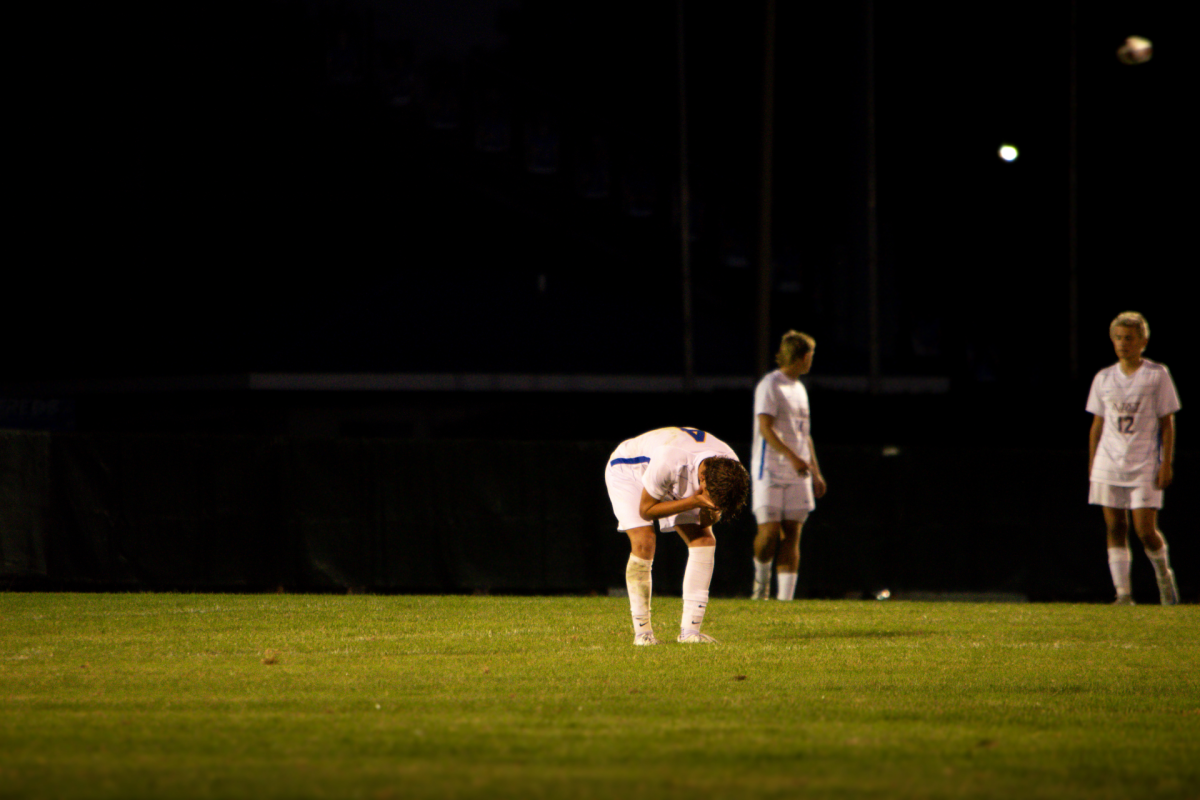The Reality Of The B+
in High school
May 6, 2023
Many people think a B+ is the end of the world. Whether students hold grades above their heads or their parent stresses academic excellence, receiving a B+ could be misleading for many reasons. Furthermore, not every student believes a B+ is a bad grade, and others think a B+ is an above-average grade. A B+ exhibits mastery and academic achievement, but to students who may have been an A+ student for most of their academic career, a B+ is fatal. There is not much reasoning for such a difference besides that these students hold different academic standards. An A+ student prioritizes their grades, while a B+ student may prioritize other practical pursuits like passions, but neither student’s values nor beliefs are wrong. Both are acceptable and rewarded in the end.
While many high schoolers are new to the college process, many believe perfect grades are the sole reason for their acceptance into college. Many students do not realize colleges look for much more than a student’s transcript. For example, a college may look at community service hours, extracurricular activities, one’s legacy status, the overall difficulty of classes, the quality of high school education, standardized test scores, the strength of a student’s application essay(s), and many more factors. With such diverse factors, transcripts seem small, but many students still hold grades over their heads.
On the larger grading scale, a B+ can range from various percentages. At NDCL, a B+ ranges from 88% to 89%. While for an average public high school in Ohio, a B+ ranges from 87% to 89%. A random selection between 0 to 100 would result in low chances of selecting 87% or above. Based on the probability perspective, establishing a percentage below 87% is much higher than choosing 87% or higher. Although a B+ is still above an average grade worldwide, a lower rate can make or break a student’s academic achievement.
Although many students may not focus on the B+ that they have received, many parents may force academic excellence onto their children. When such a child fails to achieve the standards set by their parents, the children often receive repercussions. But isn’t a B+ above an academic average? Yes, but to some parents, even above average does not matter. What matters to those parents is that their children put forth enough effort and success in receiving straight A’s.
As a college preparatory school, NDCL weighs its classes differently. For example, a B+ in CCP, AP, or Honors class is considered differently than a B+ in a regular college preparatory class. More specifically, the quality points affecting one’s GPA at NDCL are a B+ worth 3.8 points for Honors classes but only 3.3 points in a regular college preparatory class. According to recent data, an average high school student’s GPA ranges from 2.6 to 3.0, corresponding to a B- or B in a letter grade form. But should one’s GPA be the deciding factor for one’s value of academic success? As previously stated, it truly depends on the student.
Furthermore, as social media has made the comparison more prevalent among high school students, academics have always been a source of comparison. Many students compete to see who can receive the highest grade or GPA. Or the comparison may occur between siblings attempting to prove who is more intelligent than the other. But one’s smarts are not only defined by their academics. Smarts can be determined by one’s book smart, street smart, and other factors that bring knowledge.
As the school year ends, many students may lose the focus they once had at the beginning of the school year. To fail a class means repeating a high school course needed to graduate from one grade and move on to the next. For many students, failure is not a factor they must stress about, as a D or an F letter grade results in a failure. As a D and below is close to 50%, and a B+ ranges from 88% to 89%, in the NDCL community, the extensive range proves that a B+ is acceptable on many accounts. Yet, for many seniors’ failure does not seem like an option as we continue our lives in a new chapter. Failure would only bring us back a step and prohibit us from experiencing a new, exciting chapter. Mr. Waler, our current NDCL principal, and many other administrators generously remind all seniors of the implications of failing a class and running the risk of not graduating. While not all core courses are required at NDCL past a particular year, electives provide the same weight: failure to pass means a failure to graduate. So, as many of us seniors will successfully graduate from NDCL, we would also like to kindly remind all underclassmen of this critical risk. Do not allow yourself to risk not graduating but instead stay at a steady grade to allow you to experience the next chapter of your life.
So, while a B+ is considered above average, many students may require higher achievements than a B+. But as many graduates and adults may warn you, one B+ on a transcript is not the end of the world. What you gain from learning how to plan your time, how to not procrastinate, and many other essential life skills is what you should take from earning above-average grades in a time that you should enjoy, learn, and experience life.
Let us know your take in the comments!






















